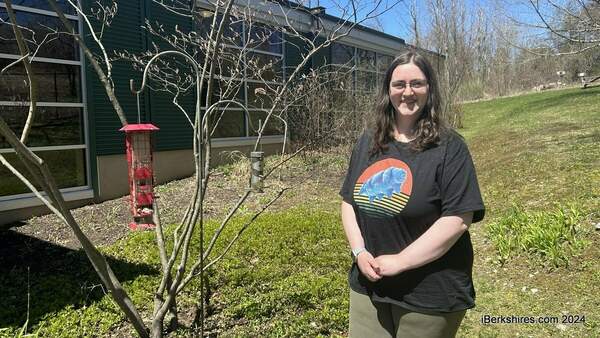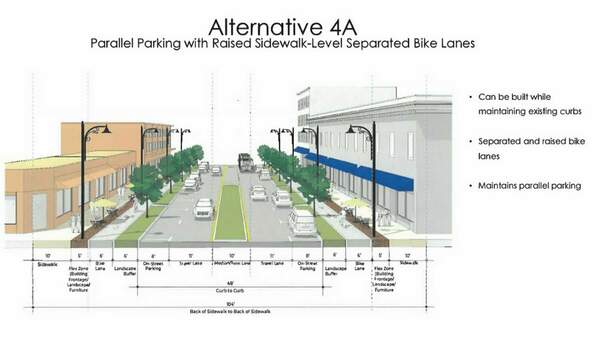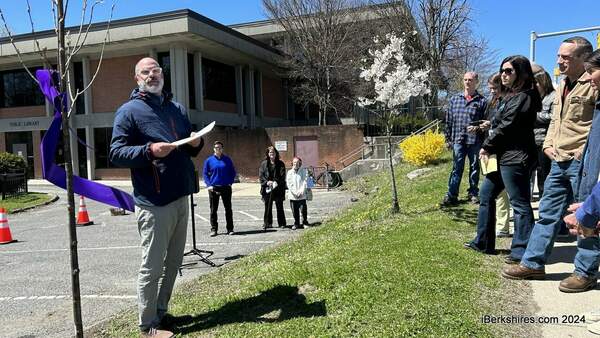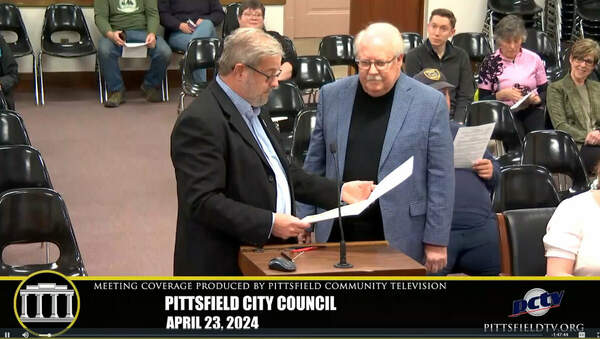DPH to Reveal PCB Cancer Study Findings This Year
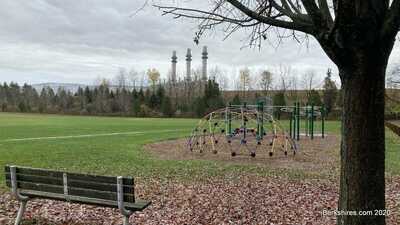 |
| An update on possible effects from PCBs and other toxins used at GE should be ready later this year. |
PITTSFIELD, Mass. — The state Department of Public Health should have the results of a cancer evaluation related to PCB exposure in about six months.
Representatives from the U.S. Environmental Protection Agency say the capped-off General Electric landfills, Hill 78 and Building 71, are not harmful but the last public health study conducted on them was more than 20 years ago.
In 2021, the City Council's Public Health and Safety subcommittee requested updated findings on the effects of polychlorinated biphenyls, or PCBs, on cancer incidence.
"At the request of this committee, DPH has initiated an updated evaluation of cancer incidents data picking up from the last evaluation that was released in 2002 that had covered years from 1982 to 1994," DPH's Community Health Assessment Section Chief Brenda Netreba said.
"So since our last meeting with this committee, we've conducted a thorough literature review to identify cancer types possibly related to PCB exposure."
At the beginning of the meeting, the subcommittee received a presentation from the EPA about volatile organic compound levels surrounding the landfills.
Groundwater data showed that in the last 48 months, all three wells were non-detect for perchloroethylene (PCE,) trichloroethylene (TCE,) and PCBs and there have been no performance standard exceedances of any constituent. PCB air levels in from 2020-2022 were 10 to 49 times lower than the EPA's risk-based screening level for the protection of human health and 100 to 500 times below the project-specific action level.
"To date, the data shows there's no health threat posed to Allendale School or the abutting neighborhood," Project Manager Richard Fisher said.
Using data collected by the Massachusetts Cancer Registry, the DPH will evaluate the pattern of 11 cancer types in the Housatonic River over 25 years. It is expected to be completed in about six months.
These include breast cancer, liver and intrahepatic bile duct cancer, colorectal cancer, gallbladder cancer, biliary tract cancer, prostate cancer, stomach cancer, melanoma, non-Hodgkins lymphoma (NHL,) and childhood acute lymphocytic leukemia (ALL.)
Bladder cancer will also be reviewed to follow up on statistical evaluations that had been previously identified during the 1982 to 1994 time period.
Pittsfield will be studied as a whole as well as its 11 census tracts and Great Barrington, Lenox, Lee, and Stockbridge, which is consistent with the 2002 evaluation.
Environmental analyst Jessica Burkhamer explained why the team did a literature review before moving forward with the study.
"Since the last cancer evaluation DPH did in 2002, there have been a number of scientific studies that identified some additional cancer types that might be associated with PCBs," she said.
"So we conducted a comprehensive literature review, to be certain that we include all cancer types that have some evidence of relationship with PCB exposure."
The department first identified cancer types from the initial report and also looked at other cancer evaluations that it has one in the past or other areas. They then looked at expert panel reports that evaluate the toxicology and the epidemiology of PCBs including reports done by the U.S. National Toxicology Program, the U.S. Agency for Toxic Substances and Disease Registry, and the International Agency for Research on Cancer.
"We then carefully reviewed the new literature for evidence in association with PCBs for all the cancer types that we had identified based on those reports. So based on this research, as Brenda said we identified 10 cancer types with some evidence of association with PCBs, we saw strong to moderate relationships with only four cancer types and those were breast cancer, liver and intrahepatic, bile ducts cancer, non-Hodgkins lymphoma, and melanoma," Burkhamer reported.
"And there was weaker evidence for the other six cancer types but to be sort of comprehensive, we're going to include all 10 cancer types just to be thorough."
Ward 2 Councilor Charles Kronick asked if the Allendale neighborhood surrounding the landfills will be focused on. It was explained that cancer registry data can be used to calculate a standardized incidence ratio that shows the observed diagnosis of a cancer type among residents living in a certain area compared to the expected number based on statewide evidence.
He said there is a concern about people getting cancer at a very young age and it is important to find the cause.
"This is an important study," Kronick said, adding that he would also like studies into non-cancer side effects from PCBs.
The DPH will write up its findings in a data brief, or a short report, and will proved a cope to the subcommittee and to the health agents of the studied communities. It will also be available online.
Tags: cancer, General Electric, PCBs, public health,


